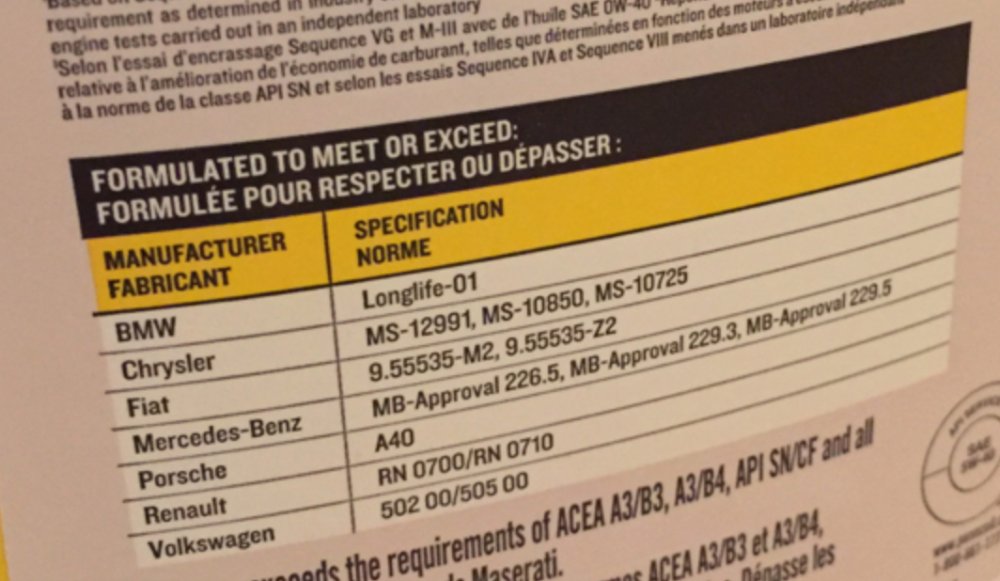Ever felt overwhelmed by the sheer number of engine oil options out there? You’re not alone. But here’s the kicker: the right engine oil can make or break your BMW 3-series E90’s performance. So, let’s cut through the noise and get you the info you need to keep your BMW purring like a kitten.
BMW’s Official Recommendations
BMW is pretty specific about what goes into their engines. For the 3-series E90, the company primarily recommends BMW Longlife-01 (LL-01) and BMW Longlife-04 (LL-04) oils.
These oils are designed to meet the high-performance requirements of BMW engines. They are the go-to choices for most BMW owners, since they are well available and reasonably affordable.
The difference between LL01 and LL04 is that LL04 is formulated for improved exhaust cleanliness. It is a must have for the new clean diesels with particulate filters. For gasoline engines, LL01 is your best bet.
You might wonder, “Why can’t I just use any oil?” Well, using the recommended oils ensures that your engine stays in top shape for longer. These oils have specific additives that protect your engine from wear and tear. Plus, they’re optimized for BMW’s unique engine dynamics. So, it’s a no-brainer to stick to what BMW suggests.
When buying oil, on the back it usually says which specifications it meets. This is also the case for the BMW Longlife-01 and -04 specifications.

Different engines have different needs. For instance, if you have a diesel engine, BMW Longlife-04 (LL-04) is your best bet. For petrol engines, Longlife-01 (LL-01) is often recommended. Check your owner’s manual for what’s recommended for your engine.
Maintenance Schedule for Your BMW 3-series E90
Changing your engine oil at regular intervals is like giving your BMW a health check-up. Regular oil changes ensure that your engine stays clean and runs efficiently.
The engineers at BMW have decided that the proper oil change interval for North America is about 10.000 miles or once a year, whichever comes first. For Europe, the interval is 15.000 kilometers or once a year.
Your BMW will give you signs when it’s time for an oil change. You might notice a decrease in fuel efficiency, or perhaps the engine sounds a bit louder than usual. Some BMWs even have a built-in oil change indicator on the dashboard. Ignoring these signs could lead to costly repairs down the line.
Skipping oil changes might save you a few bucks now, but it’ll cost you in the long run. Dirty oil can lead to engine sludge, reduced performance, and even engine failure. So, it’s better to spend a little now to save a lot later.
Understanding the Basics of Engine Oil
Think of engine oil as the lifeblood of your BMW. It lubricates the engine parts, reduces friction, and keeps the engine cool. Without it, your engine would literally grind to a halt. So, choosing the right engine oil is crucial for the longevity and performance of your BMW.
There are three main types of engine oils: synthetic, semi-synthetic, and mineral. Synthetic oils are the most advanced and offer the best protection. Semi-synthetic oils are a blend of synthetic and mineral oils and offer balanced performance. Mineral oils are the least refined but are also the cheapest.
Viscosity refers to the thickness of the oil. In simpler terms, it’s how easily the oil flows. For your BMW 3-series E90, you’ll often see oils labeled as 5W-30 or 0W-40. The first number indicates the oil’s flow at low temperatures, and the second number indicates the flow at high temperatures. Choosing the right viscosity is crucial for optimal engine performance.
Decoding Engine Oil Labels
When you’re staring at a shelf full of engine oils, those labels can look like a foreign language. But don’t sweat it! The key terms you need to know are the SAE viscosity index and the API quality oil designation. These labels tell you how the oil performs in different temperatures and its overall quality.
The SAE viscosity index, like 5W-30, tells you how the oil flows at different temperatures. It’s using the common classification “XW-XX”. The number preceding the “W” (winter) rates the oil’s flow at zero degrees Fahrenheit (-17.8 degrees Celsius). The lower the number, the less the oil thickens in cold weather. The numbers after the “XW” indicate viscosity at 100 degrees Celsius and represent the oil’s resistance to thinning at high temperatures.
Example: 0W-20 and 5W-30 oils have been developed for colder climates while 15W-40 and 20W-50 oils have been developed with hotter climates in mind.
The API quality oil designation indicates the oil’s performance level. It tells what specs the oil has, and for which engines of certain age they are appropriate. For automotive gasoline engines, the latest API Service Category includes the performance properties of each earlier category and can be used to service older engines where earlier category oils were recommended.
Knowing how to read these can save you from picking an oil that’s not up to BMW’s standards.
There are several reputable brands like Mobil 1, Castrol, and Liqui Moly that offer oils meeting BMW’s stringent requirements. These brands are often cited by BMW owners as reliable choices, ensuring you’re putting only the best into your BMW.
Seasonal Considerations for Engine Oil Selection
Your BMW’s engine oil needs can change with the seasons. In colder climates, a lower viscosity oil like 0W-40 is often recommended. This ensures that the oil flows easily even when it’s freezing outside, keeping your engine running smoothly.
For those chilly months, semi-synthetic oils like 0W-40 SL are a solid choice. These oils provide the right balance of performance and protection against the cold, ensuring your BMW doesn’t miss a beat.
In hotter climates or during the summer, a higher viscosity oil like 5W-30 is often recommended. This ensures that the oil doesn’t get too thin when the engine heats up, providing consistent lubrication and performance.
Choosing the Right Oil Filter
Don’t forget about the oil filter when you’re changing your engine oil. A good oil filter traps contaminants, keeping your engine clean and running smoothly. BMW recommends using their Oil Filter, part number 11 42-7 953 129, for the 3-series E90.
There are also other reputable brands like Mann-Filter and Bosch that offer compatible oil filters. These filters meet BMW’s specifications and are often more budget-friendly.
When it comes to cost, oil filters are relatively inexpensive. But don’t skimp on quality. A cheap filter can compromise your engine’s performance and even lead to costly repairs down the line.
Cost Considerations for Engine Oil and Maintenance
Let’s talk money. High-quality engine oil and filters might seem pricey upfront, but they’re a smart investment. Using top-notch products can extend the life of your engine, reducing the need for costly repairs in the future.
You don’t have to break the bank to maintain your BMW. There are plenty of cost-effective options for engine oil and filters that meet BMW’s specifications. Just make sure to do your homework and read reviews before making a purchase.
Exploring Alternative Engine Oil Brands
If you’re feeling adventurous, there are alternative engine oil brands that are compatible with your BMW 3-series E90. Brands like Valvoline, Pennzoil, and Royal Purple offer high-quality oils that meet BMW’s specifications.
Before you go off the beaten path, make sure the oil meets BMW’s requirements. Check for the necessary certifications and read reviews from other BMW owners.
Navigating the Road Ahead
You’ve made it! Now you’re armed with all the info you need to keep your BMW 3-series E90 running like a dream. Remember, regular maintenance and using the right engine oil are the keys to your BMW’s longevity and performance. Remember to always consult a mechanic if you’re unsure about any maintenance tasks.






